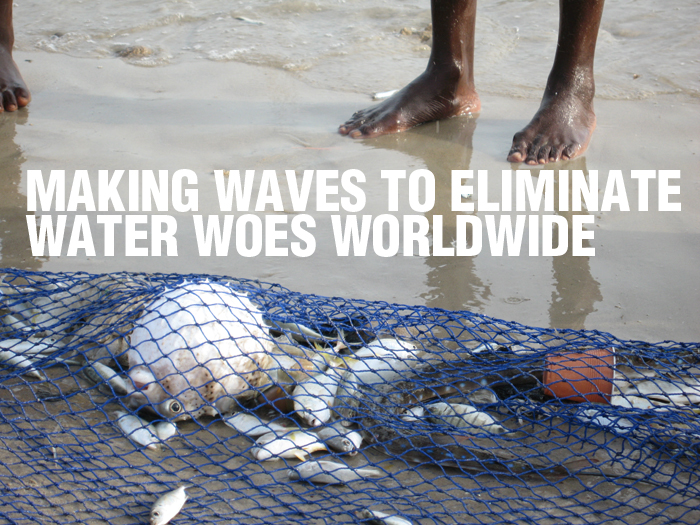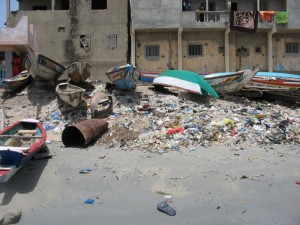Making waves: bringing fresh water to those without

It’s my turn to give back. In a month’s time, I will be leaving for Uganda to help a local organization bring fresh water facilities to a rural community that has none, and I hope you follow Far-flung Travels throughout the journey.
While on vacation last fall, I spent my last few days in West Africa at a cute beach hotel just outside of Dakar, Senegal. On a morning walk, I photographed local fisherman pulling nets from the bay, pelicans perched on brightly painted wooden boats, clothes hanging out to dry and much more. It was seemingly picture perfect, but what sticks with me most from that morning was the endless trash heap piled up in another inlet around the bend from where I was staying.
 I regret not photographing the horrific mess (I was in shock), but I won’t ever forget it. The same water from which the locals get their food is polluted with plastic waste and toxic chemicals, simply because the surrounding village lacks the infrastructure to dispose of the trash properly. Walking back to the hotel, I watched a woman come out of her home with a bucket of urine and toss it in waves.
I regret not photographing the horrific mess (I was in shock), but I won’t ever forget it. The same water from which the locals get their food is polluted with plastic waste and toxic chemicals, simply because the surrounding village lacks the infrastructure to dispose of the trash properly. Walking back to the hotel, I watched a woman come out of her home with a bucket of urine and toss it in waves.
The experience in Senegal prompted me to get involved with the Cleveland-based organization Drink Local Drink Tap (DLDT), an outreach program of the Institute of Applied Phenomenology (IAP), which aims to bring societal shifts at the level of the individual to solve big problems that seem unsolvable. Drink Local Drink Tap’s mission is to reduce the manufactured demand of plastic bottled water by encouraging consumption of tap water, especially in places where it is plentiful and safe to drink — places like Cleveland, Ohio. This one small act on an individual level has the potential to drastically reduce plastic waste choking in our waterways.
In addition to hosting monthly beach clean-ups at Edgewater Park, DLDT has partnered with the Blue Planet Network and Cleveland-based teacher and safe water advocate Teddy Mwonyonyi to raise funds to build fresh water facilities to a rural Ugandan school that houses and educates hundreds of orphaned children. When complete, the young students at St. Charles School in the Luweero District will no longer need to walk between 2.5 and 4.5 miles to the closest water source each day before school begins each morning.
More than a billion people worldwide don’t have access to safe drinking water, and it’s one of the most inexpensive problems to solve, says Erin Huber, IAP’s program director and founder of DLDT. The organization hopes to raise $50,000 by October 2011, so that the project can start on schedule in November 2012. [Donate]
My small role in the process is to document the lives of the people in the Ugandan village in order to share their stories with supporting partners and potential donors. The still images and moving pictures will hopefully gain a wider audience through screenings at festivals and events.
I am thrilled to have the opportunity to help the organization in the best way I know how. I don’t consider myself an environmental activist by any means, but I understand that the world’s oceans, seas, rivers and lakes connect us all. We all drink from the same well, so to speak, and what happens halfway around the world impacts us here at home.
Even if you can’t donate to this project, a few very small changes in personal behavior, where ever you may be, can affect big change. Join the revolution by kicking the bottled-water habit. Filter tap water and carry it in stainless-steel containers. And if you do feel compelled, consider a donation to help fund Drink Local Drink Tap’s project in Uganda or participate in the organization’s Cleveland beach clean-up events. There’s one happening this coming Saturday, June 5.
If you have 20 minutes to spare, you can check out the work I’ve done for Drink Local Drink Tap to date here. I will also be posting updates to this blog and Facebook throughout the month-long trip to Africa, which will include some extracurricular travel to Kenya and Tanzania.

Write a Reply or Comment